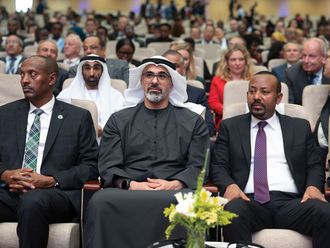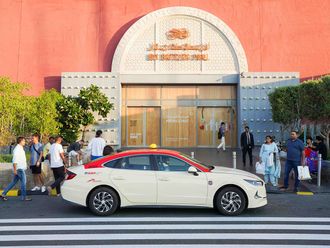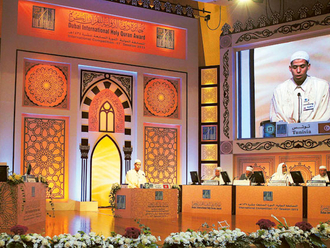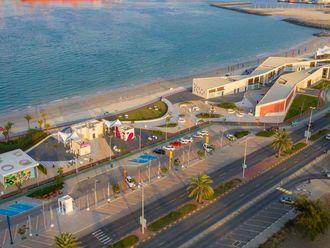Abu Dhabi: The UAE's plan to better shape the demographic profile of the country is expected to be debated tomorrow by the Federal National Council (FNC).
Sultan Saqr Al Suwaidi, a representative from Dubai, is expected to ask Lieutenant General Shaikh Saif Bin Zayed Al Nahyan, Deputy Prime Minister and Minister of Interior, about how the government plans to address the issue in keeping with its 2021 vision.
Efforts to improve the UAE's demographic structure should focus on empowering Emiratis to hold keys of the economy, through more jobs in the private sector and bigger stake in private businesses, Shaikh Saif, also chairman of the Federal Demographic Council, said earlier this month.
Shaikh Saif explained the government was working to address the demographic imbalance in a way that strikes a balance between comprehensive development and interests of the homeland.
The council, set up in November 2009 to improve the demographic profile of the UAE, has recently decided to present its strategy to the cabinet and concerned ministries to incorporate it in the UAE's development strategy.
Policies
The Labour Ministry has also initiated demographic policies and initiatives aimed at creating more jobs for Emiratis and decreasing dependence on foreign workers especially in marginal and low-skill jobs.
These measures were also aimed at liberalising the labour market and ensuring the optimal use of skilled and professional workers in the country rather than replacing them with newcomers.
The Federal Demographic Council also coordinates with departments across the country to ensure a common policy for reaching solutions to demographic issues and for maintaining harmony between the sustainable development and demographic policies.
Analysts say radical measures — which include making changes to capital-intensive industries, and changing the economic pattern which creates jobs for foreign, unskilled workers and excludes Emiratis from the labour market — are needed if efforts to better shape the demographic structure of the country are to succeed.
Dr Ebtisam Al Kitbi, professor of political science at the UAE University, told Gulf News recently that the UAE economy created jobs for foreign, unskilled workers, and excluded Emiratis from the labour market.
The construction sector contributed 8.6 per cent to gross domestic product (GDP), but employed 47.5 per cent of the foreign manpower, according to Labour Ministry statistics.
Foreign manpower
Dr Ebtisam argued that the ever-increasing reliance on foreign manpower was accompanied by a decline in productivity and had adversely affected the sustainability of economic growth and the creation of jobs for Emiratis.
Labour Ministry figures also showed university graduates employed in the private sector accounted for only 10 per cent of the UAE work force.
Lieutenant General Dahi Khalfan Tamim, Dubai Police Chief, had said a quota system for foreign workers would help address the demographic structure and maintain the identity of the country. Dr Ebtisam said the system was being used by the Labour Ministry "but the outcome was not so impressive".
Bad cheques
Hamad Harith Al Midfa, a representative of the House from Sharjah, is expected to pose a question to Shaikh Saif on the Interior Ministry's measures to curb the issue of dishonoured cheques.
The amount of money involved in bounced cheques in the UAE declined by 25 per cent in the first four months of last year to Dh18.6 billion compared with Dh24.8 billion in the corresponding period of 2009, Central Bank data shows.
This is despite the fact that the total number of bounced cheques shot up more than eight per cent during the same period from 544,196 cases of returned cheques in the January-April period in 2009 to 588,570 in the first four months of last year. Although the amount in these bounced cheques declined by a quarter in the first four months of 2010, the number of bad cheques as a percentage of total cheques presented has gone up.
While that number equated to one in every 18 cheques for the first four months of 2009, it now stands closer to one in every 16 cheques, data shows. Bouncing of cheque is a criminal offence in the UAE, punishable by prison term if the aggrieved party decides to press charges.
The country had in late last year set up a committee to look into the growing problem largely affected by the global economic slowdown.












